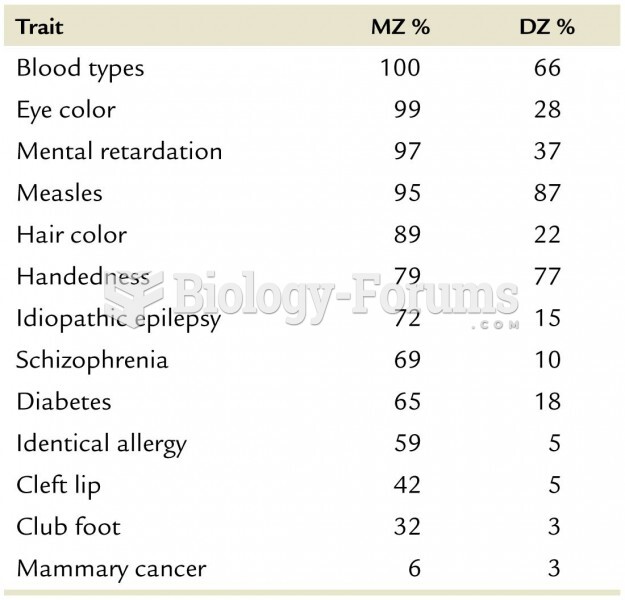This topic contains a solution. Click here to go to the answer
|
|
|
Did you know?
The most common treatment options for addiction include psychotherapy, support groups, and individual counseling.
Did you know?
Lower drug doses for elderly patients should be used first, with titrations of the dose as tolerated to prevent unwanted drug-related pharmacodynamic effects.
Did you know?
Aspirin may benefit 11 different cancers, including those of the colon, pancreas, lungs, prostate, breasts, and leukemia.
Did you know?
You should not take more than 1,000 mg of vitamin E per day. Doses above this amount increase the risk of bleeding problems that can lead to a stroke.
Did you know?
After 5 years of being diagnosed with rheumatoid arthritis, one every three patients will no longer be able to work.
 Water striders serve as a model organism for the study of sexual conflict between males and females.
Water striders serve as a model organism for the study of sexual conflict between males and females.
 The recently discovered lleret calvaria from Kenya is the smallest H. erectus and shares many traits
The recently discovered lleret calvaria from Kenya is the smallest H. erectus and shares many traits





